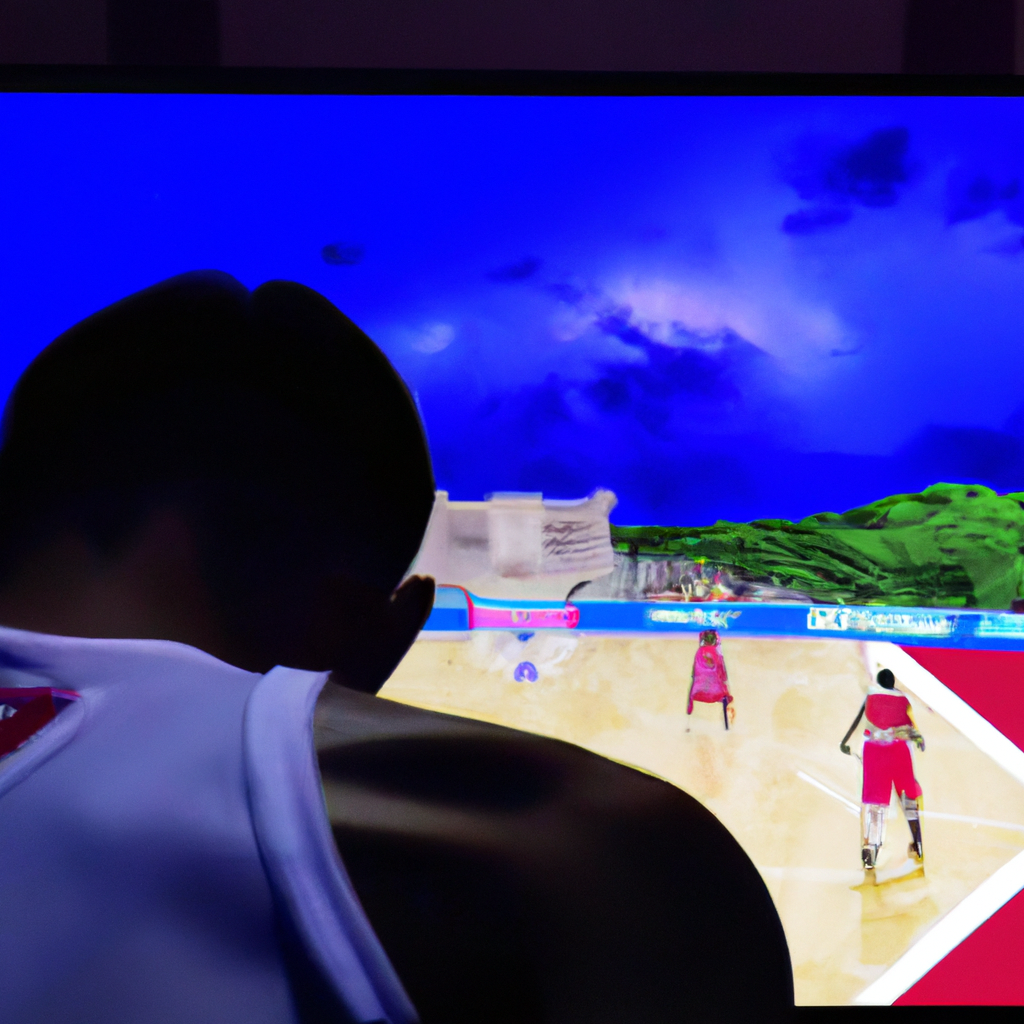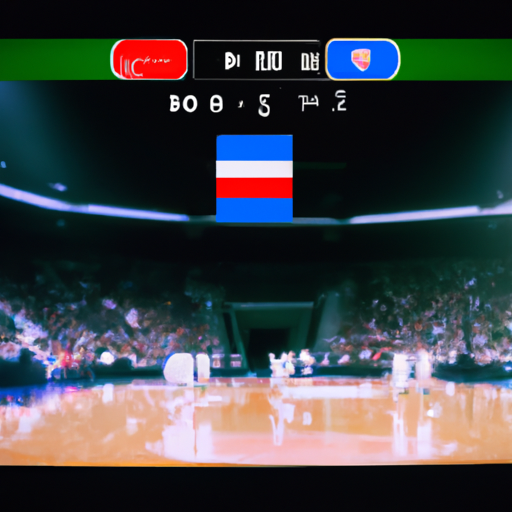Looking at Gilas’ painful loss to Dominican Republic

Analyzing the Factors Behind Gilas’ Defeat Against Dominican Republic
Looking at Gilas’ painful loss to Dominican Republic
The recent defeat of the Philippine national basketball team, Gilas, against the Dominican Republic in the FIBA Olympic Qualifying Tournament has left fans and analysts alike searching for answers. The loss was a painful one, as it dashed the hopes of Filipino basketball enthusiasts who were eagerly anticipating a spot in the Tokyo Olympics. In order to understand the factors behind Gilas’ defeat, it is important to analyze various aspects of the game.
One of the key factors that contributed to Gilas’ loss was the Dominican Republic’s superior size and athleticism. The Dominican players, many of whom have experience playing in the NBA, were able to dominate the boards and impose their physicality on the game. This advantage allowed them to control the tempo and dictate the flow of the match. Gilas, on the other hand, struggled to match up against their opponents’ size and strength, leading to a significant disadvantage in rebounding and second-chance points.
Another factor that played a role in Gilas’ defeat was their inability to consistently execute their offensive game plan. Throughout the game, the Philippine team struggled to find open looks and convert their shots. This was partly due to the Dominican Republic’s suffocating defense, which disrupted Gilas’ rhythm and forced them into difficult shots. Additionally, poor decision-making and turnovers plagued the Philippine team, preventing them from establishing any offensive momentum.
Furthermore, Gilas’ lack of experience and exposure to high-level international competition was evident in their performance. While the team has made significant strides in recent years, they still have a long way to go in terms of competing against the world’s best basketball nations. The Dominican Republic, on the other hand, has a rich basketball tradition and has consistently produced talented players who have competed at the highest level. This disparity in experience was evident in the composure and poise displayed by the Dominican players, especially during crucial moments of the game.
Coaching decisions and adjustments also played a role in Gilas’ defeat. The coaching staff’s inability to effectively counter the Dominican Republic’s game plan and make necessary adjustments throughout the game hindered the Philippine team’s chances of mounting a comeback. The lack of strategic changes and substitutions during critical moments of the match prevented Gilas from gaining any momentum and turning the tide in their favor.
Despite the painful loss, it is important to acknowledge the efforts and resilience displayed by the Gilas players. They fought hard until the final buzzer and never gave up, despite facing a formidable opponent. The defeat serves as a learning experience for the team, highlighting areas that need improvement and providing valuable lessons for future competitions.
In conclusion, Gilas’ defeat against the Dominican Republic in the FIBA Olympic Qualifying Tournament was a painful one for Filipino basketball fans. The factors behind the loss include the Dominican Republic’s superior size and athleticism, Gilas’ struggles in executing their offensive game plan, their lack of experience in high-level international competition, and coaching decisions and adjustments. Despite the disappointment, the defeat should be seen as an opportunity for growth and improvement for the Philippine national basketball team.
Lessons Learned from Gilas’ Painful Loss to Dominican Republic

Looking at Gilas’ Painful Loss to Dominican Republic
The recent game between Gilas, the Philippine national basketball team, and the Dominican Republic was a painful one for Filipino basketball fans. The final score of 94-67 in favor of the Dominican Republic left many disappointed and questioning what went wrong. However, every loss provides an opportunity for growth and learning. In this article, we will examine the lessons that can be learned from Gilas’ painful defeat.
Firstly, one of the key lessons from this game is the importance of teamwork. Basketball is a team sport, and individual brilliance alone cannot guarantee success. Gilas struggled to find their rhythm on offense, often resorting to isolation plays that resulted in turnovers. The Dominican Republic, on the other hand, displayed excellent teamwork, with players moving the ball fluidly and finding open teammates for easy baskets. This game serves as a reminder that basketball is a collective effort, and success comes from working together as a team.
Another lesson to be learned from this loss is the significance of preparation and scouting. The Dominican Republic came into the game well-prepared, having studied Gilas’ strengths and weaknesses. They exploited Gilas’ lack of size and physicality, dominating the rebounding battle and scoring numerous second-chance points. Gilas, on the other hand, seemed unprepared for the Dominican Republic’s aggressive defense, often struggling to find open shots. This defeat highlights the importance of thorough preparation and scouting in order to anticipate and counter the opponent’s strategies.
Furthermore, this game emphasizes the need for mental toughness and resilience. Gilas appeared to be rattled by the Dominican Republic’s physicality and aggressive play. They seemed to lose confidence as the game progressed, resulting in poor shot selection and defensive lapses. In contrast, the Dominican Republic maintained their composure and focus throughout the game, never allowing Gilas to mount a comeback. This loss serves as a reminder that mental toughness is just as important as physical skills in competitive sports.
Additionally, this defeat highlights the importance of adapting to the game’s changing dynamics. Gilas struggled to adjust to the Dominican Republic’s defensive schemes, often forcing contested shots and committing turnovers. The Dominican Republic, on the other hand, made effective adjustments on both ends of the court, exploiting Gilas’ weaknesses and capitalizing on their own strengths. This game serves as a reminder that flexibility and adaptability are crucial in the face of adversity.
Lastly, this loss provides an opportunity for self-reflection and improvement. Gilas must analyze their performance objectively and identify areas for growth. This defeat should serve as motivation to work harder and address the team’s weaknesses. It is through losses like these that teams can learn valuable lessons and come back stronger in future games.
In conclusion, Gilas’ painful loss to the Dominican Republic offers several important lessons. Teamwork, preparation, mental toughness, adaptability, and self-reflection are all crucial aspects of success in basketball. While this defeat may be disheartening, it provides an opportunity for growth and improvement. Gilas must learn from their mistakes, make the necessary adjustments, and come back stronger in future games. Only through learning from defeats can a team truly reach their full potential.
Exploring the Impact of Gilas’ Loss on Philippine Basketball
The recent loss of the Gilas Pilipinas basketball team to the Dominican Republic has sent shockwaves through the Philippine basketball community. The defeat, which came in the FIBA Olympic Qualifying Tournament, has left fans and analysts alike questioning the state of Philippine basketball and its ability to compete on the international stage.
The game itself was a painful one to watch. Gilas started off strong, with a fast-paced offense and a suffocating defense that seemed to rattle the Dominican Republic players. However, as the game progressed, the Dominican Republic team found their rhythm and began to chip away at Gilas’ lead. The Philippine team struggled to maintain their composure and make crucial shots down the stretch, ultimately leading to their defeat.
The impact of this loss on Philippine basketball cannot be understated. For years, Gilas has been seen as the flagbearer of Philippine basketball, representing the hopes and dreams of a nation that is passionate about the sport. The team’s success in international competitions has brought pride and joy to Filipino fans, and has helped raise the profile of Philippine basketball on the global stage.
However, this loss to the Dominican Republic raises questions about the future of Gilas and Philippine basketball as a whole. It highlights the need for a reevaluation of the current state of the sport in the country, and the steps that need to be taken to ensure that Philippine basketball remains competitive in the international arena.
One of the key issues that this loss brings to light is the lack of depth in Philippine basketball. While Gilas has a talented roster of players, there is a noticeable drop-off in skill level once you move beyond the starting lineup. This lack of depth was evident in the game against the Dominican Republic, as the bench players struggled to make an impact and provide meaningful contributions.
Another issue that needs to be addressed is the development of young talent in the country. While there are certainly talented young players in the Philippines, there is a need for a more structured and comprehensive development program that can help nurture and cultivate these talents. This will require investment in coaching, facilities, and grassroots programs that can identify and develop young players from a young age.
Furthermore, this loss also highlights the need for a more strategic approach to international competitions. While Gilas has had success in the past, there is a need for a more systematic and long-term approach to preparing for these tournaments. This includes scouting opponents, analyzing their strengths and weaknesses, and developing game plans that can exploit these weaknesses.
In conclusion, the loss of Gilas Pilipinas to the Dominican Republic has had a significant impact on Philippine basketball. It has raised questions about the depth of talent in the country, the development of young players, and the strategic approach to international competitions. However, it is important to remember that this loss is not the end of Philippine basketball. It is an opportunity for reflection and growth, and a chance to make the necessary changes that will ensure the future success of Philippine basketball on the international stage.

